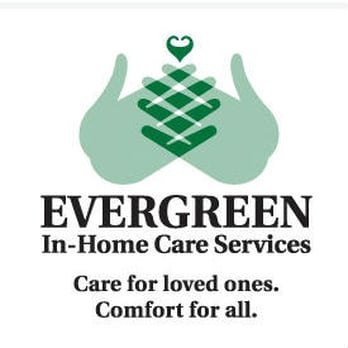
For anyone who wants to make more money, a part time job as a health care professional is a great opportunity. There are many medical careers that offer part-time opportunities, so whether you're looking for a job as a student or a parent looking to make extra money, there is something for everyone. The BLS predicts healthcare jobs will grow by 16% between 2020-2030.
If you're interested in pursuing a career in health care, it's important to know what you'll be getting into. There are many roles to consider, from front desk clerks to specialist doctors. You can also get good pay and benefits if your are open to working.
Many employers also offer parttime benefits to help with your financial needs. Starbucks offers health insurance to employees that work a certain number of hours per semaine.

Both Lowe's, Home Depot, and Lowe's offer part-time health insurance. Both companies offer health insurance that covers preventative care, up to four primary care visits per year. Depending on the company you work for, you might be eligible to receive vision and dental benefits. A plan that covers prescription drugs may be available. A few companies even allow you to pick your own provider, which can prove to be a big benefit.
Another great benefit of having a part-time job in health care is the opportunity to make your own schedule. Flexible hours and flexible work schedules are common in these jobs. This can make it possible to accommodate your family. This can reduce stress, anxiety and concern about unexpected circumstances. It can also help you to avoid unexpected expenses.
Part-time healthcare jobs can be found in many cities across the country, depending on where you are located. You can find many different career opportunities in the health care industry, including those in New York, San Francisco, Boston, and Los Angeles. These positions are available to all levels of education, even entry-level positions.
SimplyHired is the best place for you to start your search if you are looking for a job in healthcare. This site is trusted and simple to use. There are tens of thousands of jobs posted at this site, making it the perfect starting point for your search. A search feature allows you to filter your results according to many criteria.

There are many opportunities to become a part-time nurse if you are interested. A common requirement is to have an associate's or higher degree. However, you can also find a variety of positions that do not require a degree.
Internships are another way to get a job as a health care professional. There are many government agencies and organisations that offer paid internships. Internships can help you get started and eventually lead to a job at a hospital.
FAQ
What are the various health care services available?
Patients should be aware of the fact that they have 24/7 access to high-quality healthcare. No matter whether you require an urgent appointment or routine check-ups, we are available to help.
We offer many types and types of appointments. For those who live outside of our clinic, we also offer home care visits. We will ensure that you get prompt treatment at the nearest hospital if you aren't comfortable visiting our clinic.
Our team includes nurses, doctors, pharmacists, dentists, and other professionals dedicated to providing excellent patient service. Our goal is to make each visit as painless and convenient as possible.
Who is responsible to ensure public health?
Public health is an issue that affects all levels of government. Local governments manage roads, schools and parks as well as recreation facilities. The laws and regulations governing food safety, workplace safety as well as consumer protection are enacted by both the national and state governments.
What are my options for immunizations in the United States?
Immunization is the process by which a vaccine stimulates an immune response. The body produces antibodies (immunoglobulins), to protect itself against infection after receiving the vaccine.
What are the different types of health insurance?
There are three main types for health insurance:
-
Private insurance covers the majority of your medical costs. This type of insurance is often purchased directly from private companies, so you pay monthly premiums.
-
Public health insurance covers most of the cost of medical care, but there are limits and restrictions on coverage. Public insurance, for example, will not cover routine visits to doctors or hospitals, labs and X-ray facilities.
-
You can use medical savings accounts (MSAs), to save money for future healthcare expenses. The funds are kept in a separate account. Most employers offer MSA programs. These accounts are tax-free, and they accumulate interest at rates similar to bank savings accounts.
Statistics
- Over the first twenty-five years of this transformation, government contributions to healthcare expenditures have dropped from 36% to 15%, with the burden of managing this decrease falling largely on patients. (en.wikipedia.org)
- The health share of the Gross domestic product (GDP) is expected to continue its upward trend, reaching 19.9 percent of GDP by 2025. (en.wikipedia.org)
- Foreign investment in hospitals—up to 70% ownership- has been encouraged as an incentive for privatization. (en.wikipedia.org)
- Healthcare Occupations PRINTER-FRIENDLY Employment in healthcare occupations is projected to grow 16 percent from 2020 to 2030, much faster than the average for all occupations, adding about 2.6 million new jobs. (bls.gov)
- For instance, Chinese hospital charges tend toward 50% for drugs, another major percentage for equipment, and a small percentage for healthcare professional fees. (en.wikipedia.org)
External Links
How To
How to Find Home Care Facilities
People who need help at home will benefit from the services of home care providers. Home care facilities can be used by elderly or disabled individuals who are unable to get around on their own, as well those suffering from chronic diseases like Alzheimer's. These facilities provide personal hygiene, food preparation, laundry and cleaning services, as well medication reminders and transportation. These facilities often collaborate closely with social workers, rehabilitation specialists, and medical professionals.
Recommendations from family, friends, and local businesses or reviews online are the best ways to find a home-care service provider. After you have identified a few providers, you can inquire about their experience and qualifications. Flexible hours are important so they can work around your schedule. Also, check if they offer 24/7 emergency response.
It might be worth asking your doctor/nurse for referrals. You can search online for "home care" or "nursing homes" if you aren't sure where to look. You could, for example, use websites such Angie's List HealthGrades or Yelp.
For more information, you can also contact your local Area Agency on Aging or Visiting Nurse Service Association for further assistance. These agencies will provide a list of local agencies that offer home care services.
Because many home care agencies charge high fees, it is essential to choose a reliable agency. In fact, some agents charge up to 100 percent of a patient’s annual income. To avoid this problem, you should be sure to choose an agency that has been rated highly by the Better Business Bureau. Get references from past clients.
Some states require home care agencies registered with the State Department of Social Services. To find out what registration requirements your agency must meet, check with your local government office.
There are many things you need to remember when selecting a Home Care Agency:
-
Do not pay upfront for any services if you are being asked.
-
Be sure to choose a reliable and established business.
-
You should have proof of insurance, especially if your payment is out of pocket.
-
Check that your state licenses the agency you are about to hire.
-
For all costs related to hiring the agency, request a written contract.
-
Confirm that after discharge, the agency will provide follow-up visits.
-
Ask for a list or certifications.
-
Sign anything without first reading it.
-
Pay attention to the fine print.
-
You should verify that the agency you are dealing with is insured and bonded.
-
Ask the agency how long they have been in business.
-
Verify that the State Department of Social Welfare has licensed the agency.
-
Find out if complaints have been filed against the agency.
-
Contact your local government office that regulates home-care agencies.
-
It is important to ensure that staff members answering the phones are qualified to answer any questions you may have about homecare.
-
Ask your lawyer or accountant for tax advice on the use of home-based care.
-
Always solicit at least three bids per home care agency.
-
You can choose the lowest price, but not less than $30 an hour.
-
Be aware that you may be required to pay for more than one visit to a local home care agency each day.
-
When signing contracts, read everything carefully.